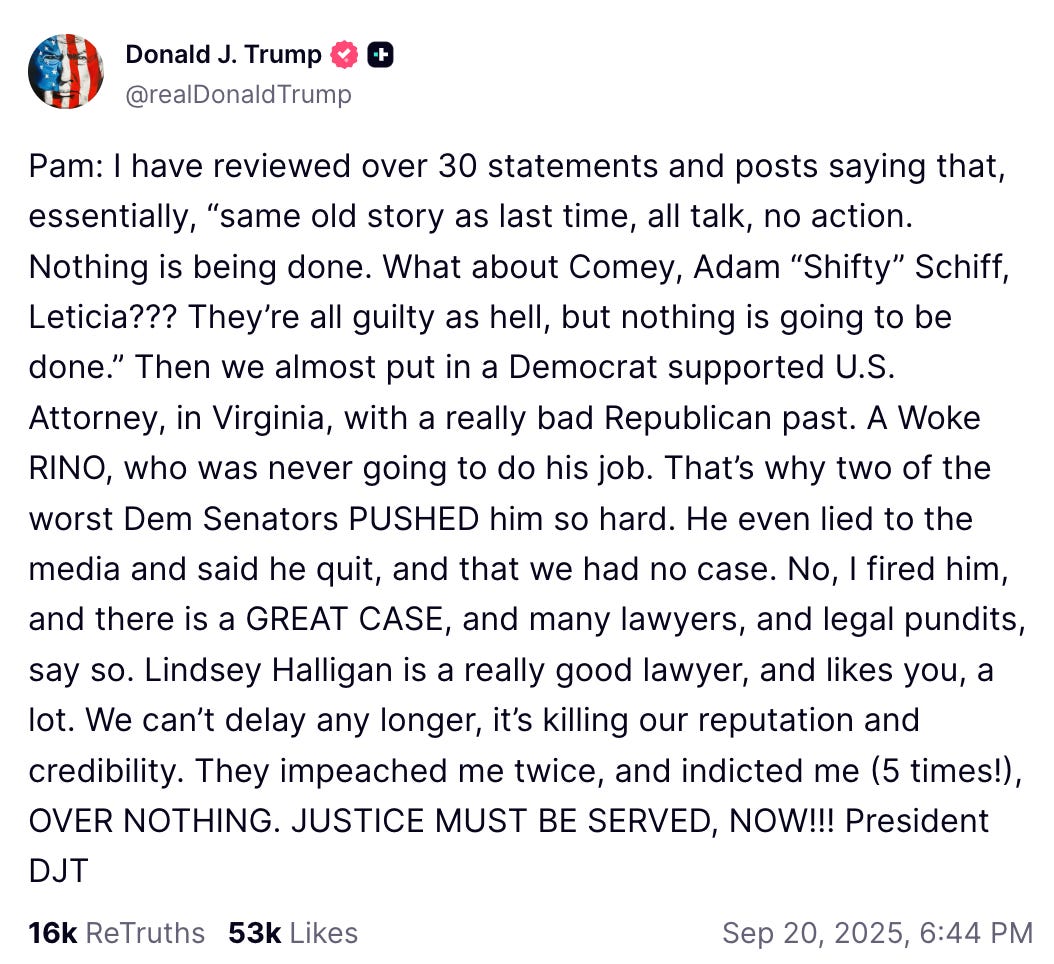November 3, 2025
Federal Judge Unseals Controversial Trump DOJ Subpoenas in Clash with NY Attorney General

In a striking rebuke to the Trump Justice Department, Federal Judge Lorna Schofield ordered the unsealing of contentious DOJ documents on Friday. These documents detail efforts to subpoena records from New York Attorney General Letitia James, highlighting a fraught intersection of politics and law enforcement practices.
The subpoenas, issued on August 5 by the US Attorney’s Office for the Northern District of New York (NDNY), demanded comprehensive records from cases involving Donald Trump and the National Rifle Association (NRA). These actions have been interpreted by many as politically motivated, aiming to undermine James following her office's legal actions against Trump and the NRA.
The timing and nature of these subpoenas have raised significant concerns about the weaponization of the Justice Department—a recurring theme in Trump's administration. The department, under the control of figures like NDNY's US Attorney John Sarcone III, a Trump appointee with no prior prosecutorial experience, has been accused of engaging in retaliatory legal maneuvers against perceived adversaries.
Sarcone's appointment itself has been mired in controversy. He was installed as a "special attorney" under dubious circumstances, a tactic previously employed and struck down in other states. This legal strategy has been criticized for circumventing traditional Senate confirmation processes, thereby undermining the legitimacy of the Justice Department's actions.
Judge Schofield’s decision to unseal the documents was driven by the public's right to understand the possible politicization of federal prosecutorial powers. "The ‘special circumstances’ of this case—namely that the grand jury information at issue is not secret and that the motion to quash implicates questions of national concern—weigh decisively in favor of unsealing," Schofield wrote.
As the legal battle unfolds, Sarcone faces the challenging task of justifying his continued role in the NDNY. The outcomes of similar cases in New Jersey, Nevada, and California may foreshadow difficulties for Sarcone's defense. These precedents suggest that while the subpoenas might remain valid, Sarcone's authority to issue them could be effectively nullified if his appointment is deemed unlawful.
The ongoing saga underscores broader concerns about the integrity of the Justice Department under Trump's influence, as critics and legal observers watch closely for the final ruling on these subpoenas. This case not only questions individual legal appointments and actions but also probes the unsettling potential for systemic abuse of power within one of the nation’s most pivotal legal institutions.